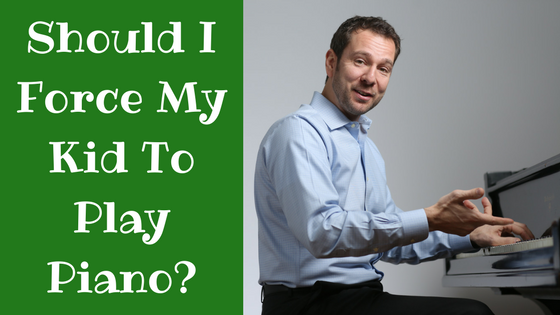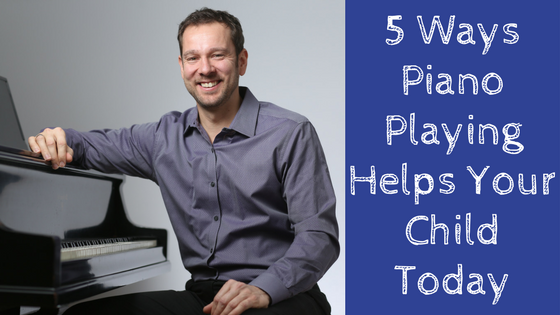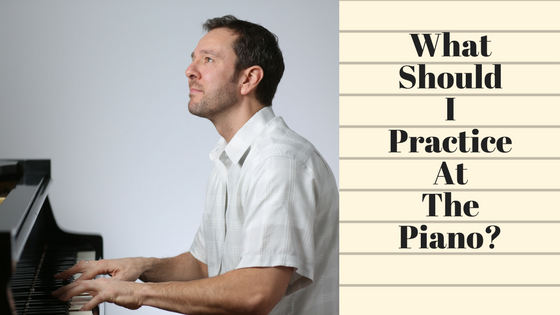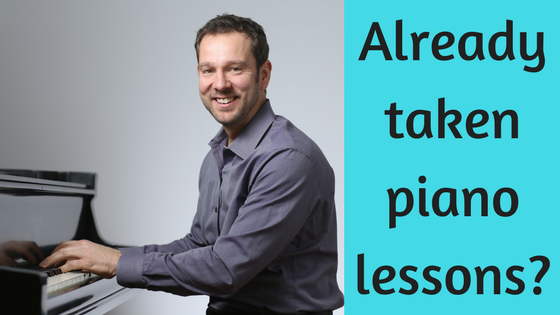Should I Force My Kid To Play Piano?

I was recently asked this question by a HomeSchoolPiano parent: “Should I force my child to play the piano?”
I figured this would be a good article since this a question that most parents struggle with at some point. Whether it be piano lessons, karate, sports, dance or other activities, our children often force us to confront our own values.
The short answer is no. I don’t think it is ever a good idea to force a child to play the piano. Ultimately, this will end in resentment toward the parent and the instrument, cutting off all possibility of future learning.
As a parent myself, I know the importance of giving my child opportunities that will serve them for years to come. I believe learning an instrument is one of those opportunities. The ability to sit at the piano and play a piece is the dream of many adults. Why? Well, I believe it comes down to our need to express ourselves. Playing the piano allows you to express yourself in a way that words cannot.
So, what should you do when your child wants to quit piano? This will depend on the individual and the family, but here are some options that might work for you and your family.
4 Ways To Keep Them Playing Piano Today…
- Determine if they don’t like the piano, or don’t like to practice the piano. These are two separate activities. Does your child sit and “noodle around” at the piano? Do you hear them playing the instrument without being told? Or, if asked, will they play with little hesitation? Do they play the piano outside of the home? Do they show their friends piano pieces they have learned or even try teaching their friends? If so, they most likely enjoy the piano, but dislike piano practice. This is normal and happens to most students from time to time. If this is the case, allow them to take 2 weeks off of piano practice, as long as they continue to play the piano for fun.
- I’ve had great results with “contracts” in my private studio. Basically, if the student still likes to play the piano, make an agreement with them to practice X number of days for X number of minutes per day. This includes them in the process and it will feel less like they are being told and more like they are being included. After all, in the end, it is their expression. They are developing themselves, not you, so they should be included. This is age dependent. I wouldn’t make a contract with a six-year-old. With that age group, I might offer an incentive if they do XYZ for practice.
- Sit and practice with your child. This is especially important for younger students. Parents have complained to me in the past that their 8-yr old is not practicing, but also admit that they do not sit with them when they practice. Let’s face facts…practicing the piano is a lonely endeavor. Parental involvement, especially in the earlier years, is critical. If you are just telling your child to practice, and you are not involved, they will likely lose interest quickly.
- Use this as an opportunity to learn yourself. Since our lessons start from the most basic level, anyone can learn to play the piano using HomeSchoolPiano. If you spend 10 minutes a day working through a lesson, not only will you learn a new self-expression skill, you’ll also help your child to see just how important music is to YOU. This is crux of this entire article. If you are just telling your child to practice, they are not seeing WHY learning the piano is important. You know it is important because it develops self-expression, confidence and fine motor skills. Learning the piano also has scientific ties to improvements in other subjects like math and science. So, if your child wants to call it quits, use this as an opportunity to call it a “new beginning” for you! You’ll thank yourself later and so will your child!
So these are just a few ways to help keep your child interested in learning the piano. It is an easy instrument to learn at first, but challenging to keep up momentum. Your child will be challenged at some point and they might want to quit. It happened to me and happens to almost all piano students young and old at some point.
However, following through to the point where you can sit and easily make music at the piano is an absolute gift. If you are struggling in your family to keep your child learning the piano, I would suggest trying one of the 4 steps above. Most of all, an honest discussion of why learning the piano is important to you will produce more results than explaining to your child all the reasons why they should continue.
We know as parents that children live in the moment and often do not think of the future. It is our job as their parents to think and plan for their future. With persistence and love, I am convinced that you will find a path that is right for your family!







Responses